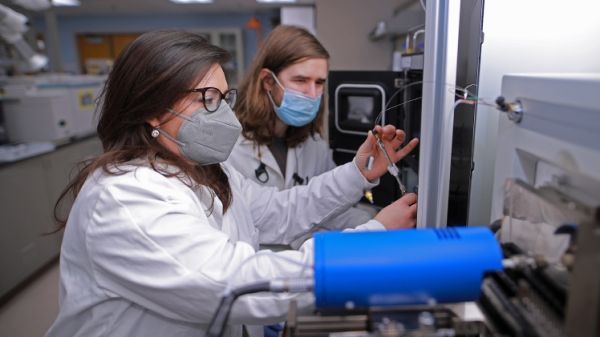As companies that drill for oil and natural gas using hydraulic fracturing consider recycling and reusing wastewater that surfaces from wells during the fracking process, chemists at The University of Toledo discovered that the new and unexplored waste contains many environmental contaminants including organic chemicals and metallic elements.
Research scientists at UToledo’s Dr. Nina McClelland Laboratory for Water Chemistry and Environmental Analysis in collaboration with the University of Texas Arlington achieved a comprehensive characterization of the chemical composition of produced water samples extracted in Texas, indicating the presence of toxic and carcinogenic contaminants in untreated samples, which can pose a threat to wildlife and human health.
Unraveling the complex composition of produced water by specialized extraction methodologies, the results published in Environmental Science and Technology provide critical information that can help regulatory agencies fine-tune proposed guidelines related to the safe treatment and disposal of fracking wastewater to protect drinking water sources.
Continue reading at University of Toledo
Image via University of Toledo


